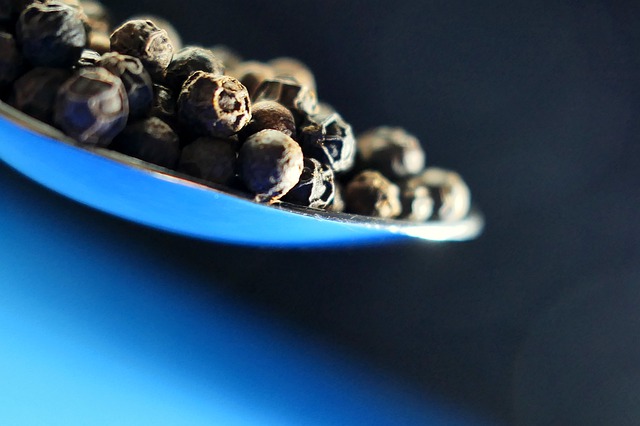Adding a pinch of black pepper to any recipe enables you to enhance flavor, but that’s not all. The king of spices also provides a number of health benefits while adding a depth of flavor. It comprises of minerals like calcium, phosphorus, sodium, potassium and vitamins like niacin, vitamin B6 and thiamin. It also has dietary fiber and some amount of protein and carbohydrates. Therefore, it can provide a number of health benefits. What are they? Some of the top ones are:
Anti-Tumor properties
Black pepper contains antioxidants that can repair or prevent the damage caused by free radicals and this can help in preventing diseases. It also contains piperine that exhibits anti-tumor activity for certain types of cancer, such as colorectal cancer, breast cancer and prostate cancer.
Improves digestion
When you take your daily dose of pepper, it increases the secretion of hydrochloric acid in the stomach, which facilitates digestion. With proper digestion, you can avoid intestinal issues, such as constipation, colic and diarrhea. Pepper can promote urination and sweating thereby removing foreign bodies and toxins. When your digestion is improved, it can also lead to weight loss and prevent gastrointestinal condition.
Skin care
You can get relief from skin diseases, such as vitiligo, with black pepper. The skin is stimulated to produce melanocytes pigment, which can help with the pigmentation.
Antibacterial quality
Black pepper also has antibacterial qualities that help it in fighting insect bites and infections. It can also keep your arteries clean as it scrapes the excess cholesterol from the walls. In this way, it can reduce the possibility of stroke and heart attack.
Respiratory relief
Black pepper is used in Ayurvedic practices for treating cough and cold. It can also provide relief from nasal congestion and sinusitis. The spice’s expectorant property can break up the phlegm and mucus depositions.

